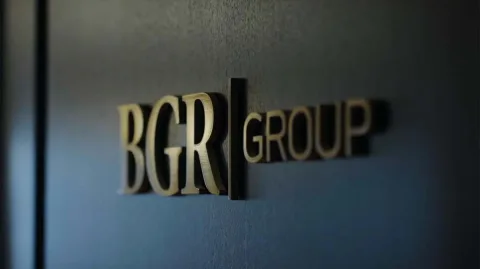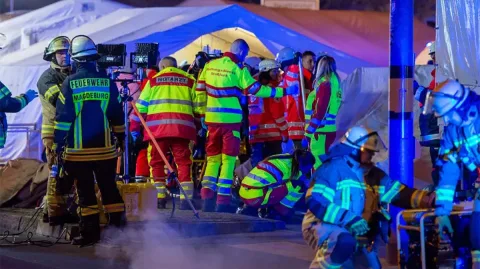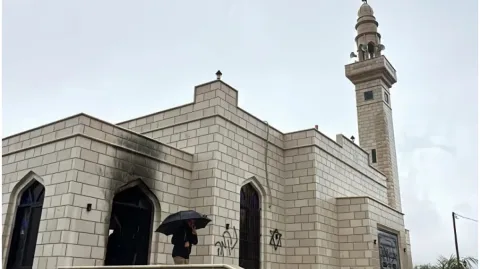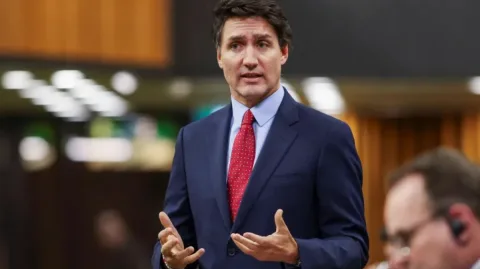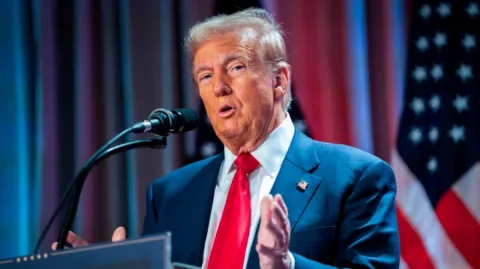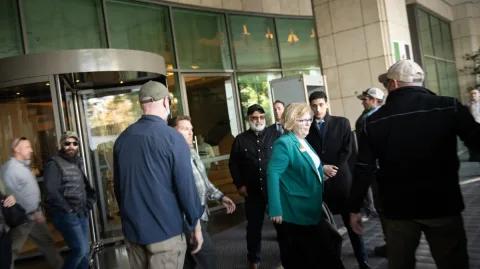Hassan Sheikh Mohamud is embarking on his second term as president of Somalia, but droughts, al-Shabaab…
Hassan Sheikh Mohamud is embarking on his second term as president of Somalia, but droughts, al-Shabaab and a struggling economy pose major challenges.
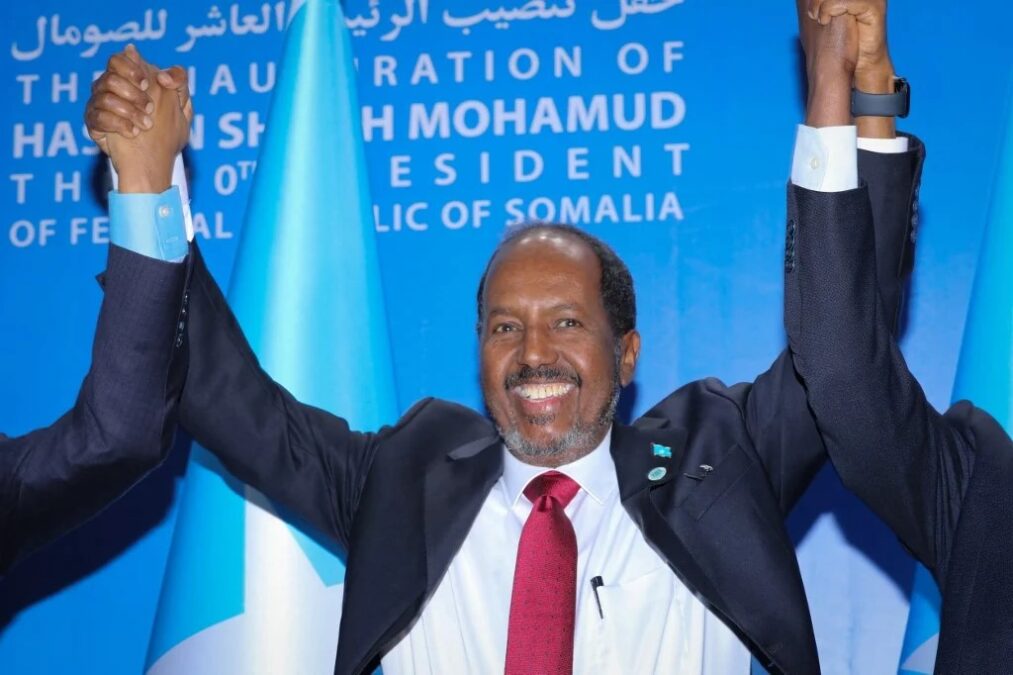
Within hours of Hassan Sheikh Mohamud’s return as president of Somalia, the US announced it would redeploy 500 troops to aid in the fight against the terrorist group al-Shabaab. The immediacy of the move reflected an unavoidable truth of modern Somalia: there can be no true progress unless the security situation improves.
The scholarly Mohamud, who first served from 2012 to 2017, is the first Somali president ever to return to office. He faces a list of challenges, from reconciling warring provincial leaders and implementing economic reforms to rescuing regional ties and confronting the worst drought in 40 years. Yet thwarting the militants – whose ceaseless bombings have killed tens of thousands of Somalis – takes primacy. “Our top priority is security,” Mohamud noted after being sworn in.
Stability and peace could allow Somalia’s strong points, from ports to petroleum reserves, to bear fruit. The last major offensive against al-Shabaab was in 2019, and African Union peacekeeping troops are due to leave in three years, meaning the new president has his work cut out.
To complicate matters, economic failings and governance crises have offered al-Shabaab a recruitment tool for unemployed and hungry young men. The UN’s World Food Programme says that up to 7m Somalis are menaced by drought. 7m head of livestock – over a third of the country’s total – have perished. The UN humanitarian coordination office OCHA says 771,400 people have been displaced in search of water, food and pasture; mostly women and children.
“Two of the main challenges currently facing President Mohamud are the ongoing drought, which has left much of the population at risk of famine, and the security threat of al-Shabaab,” says Zaynab Mohamed, a political analyst at Oxford Economics Africa. “Economic progress can only be achieved if these issues are addressed by the government concurrently, and consistent efforts are made to stabilise the political environment.”
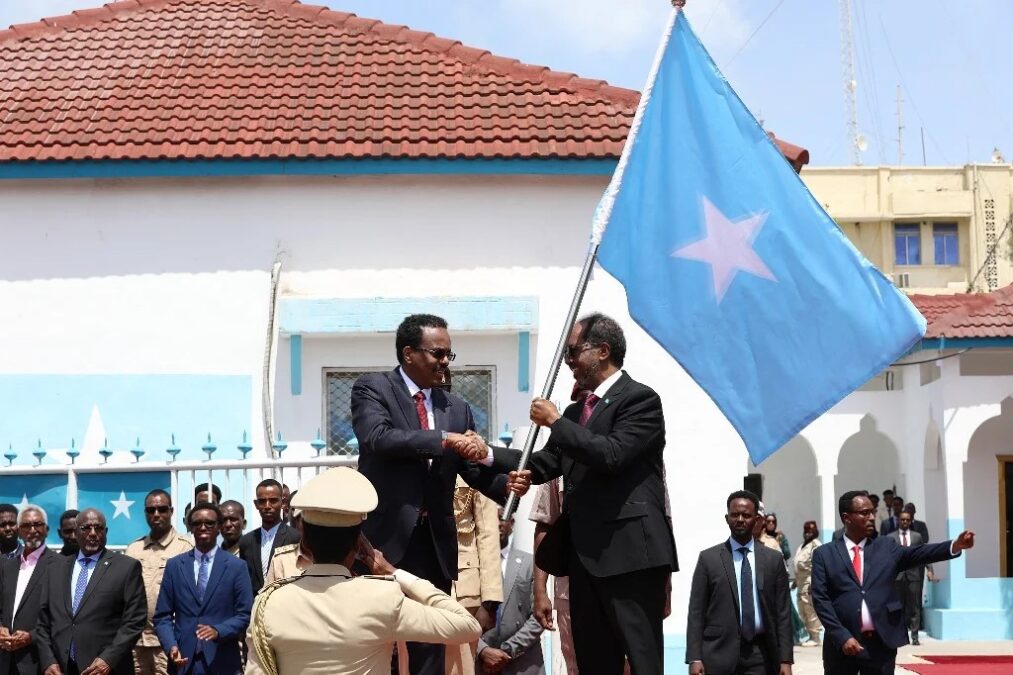
New approach to regions
Mohamud was selected by Somali legislators, not the public. The country has not been able to hold one-person-one-vote elections since the onset of its devastating civil war in 1991. Despite the democratic drawbacks, the vote promised to cure a recent sickness in Somali politics, caused when Mohamud’s predecessor, Mohamed Abdullahi Mohamed – known as Farmaajo – fell out with regional leaders and his own prime minister over extending his term. The row divided Somalia’s security forces, prompting firefights in the streets. Vital attention was drawn away from the fight against al-Shabaab.
“In the last five years, politics in Somalia has very much been dominated by this deepening division between the federal government and the federal member states which has paralysed any significant progress in important areas, such as governance, security sector reform, the constitution and resource allocation,” says Ahmed Soliman, a Horn of Africa research fellow at Chatham House. “Farmaajo’s approach was to try to strong-arm and essentially take over member states by inserting his own allies in leadership positions.”
Signalling a shift in approach, Mohamud has welcomed former political rivals and Somalia’s regional leaders to the presidential residence, and has appointed Hamza Abdi Barre from the restive region of Jubbaland as his prime minister. “Ultimately improved coordination between the federal government and the member states is required for effective security sector reform,” said Soliman.
Improving ties with Somaliland, which declared independence in 1991 and has its own currency, police force and trade deals, will be another story. Somaliland has established economic and diplomatic ties with regional powerhouses Ethiopia and Kenya – which has a maritime border dispute with Mogadishu – in recent years. Days after Mohamud was sworn in, Nairobi apologised for including the flag of Somaliland at a diplomatic function, which led the Somali ambassador to walk out in protest. “I think it must be much more considered, carefully addressed, to take some of the heat out of it,” said Soliman.
Mohamud said he wants “a peaceful country that is at peace with the world.” Already, Somalia has resumed importing khat, a popular mildly narcotic leaf, from Kenya. The leaders of Ethiopia, Kenya and Djibouti attended his inauguration. The new president’s first official trip was to the United Arab Emirates, suggesting he hopes to revive ties with rich Gulf states on whom Somalia previously relied for trade, aid and military assistance. Mogadishu fell out with Abu Dhabi during Farmaajo’s tenure as Somalia grew closer to regional rivals Qatar and Turkey.
Reforming the ‘war economy’
Boosting Somalia’s international reputation will require action on corruption. Mohamud’s first term in office between 2012 and 2017 saw rampant graft, with so-called “ghost soldiers” filling the ranks of the military. Soldiers that did exist ended up selling their guns after not being paid.
“Corruption has been unchecked in Somalia by successive governments, leading to wastage of time and resources meant for the provision of security and other services for the public. Taxes and donor support meant for security and development is wasted because the government lacks the proper accountability mechanisms to be held accountable by the public and by itself,” Mohamed Mubarak, executive director of Marqaati, Somalia’s only anti-corruption organisation, tells African Business.
“The current government prioritises security above all else; however, security cannot improve while there is corruption. It is up to the donor partners – who primarily fund the government – to demand good governance measures to ensure corruption is combatted.”
“We have a war economy and war profiteering now, and only with a proper, accountable government, can we hope to unlock the full potential of economic development.”
The new president says that digitisation of government and economic reforms he previously helped negotiate with the IMF and World Bank will allow him to tackle corruption and reform Somalia’s war-battered economy, in which almost 70% of Somalis living below the international poverty line of just $1.90 a day.
He received a boost in late May when the IMF renewed a three-year, $400m aid package. Under the terms of the programme, which targets poverty reduction and macroeconomic stability, Somalia’s debt could fall to $557m by next year, from $3.9bn today, freeing the country to attract further financial assistance.
“The recent decision by the IMF to delay the expiration of the Extended Credit Facility is welcome, as it will provide the government with some much-needed relief,” says Mohamed. “But it will still take some time for the new administration to settle in before plans for economic growth can be taken into consideration.”
The economy, which is mostly agricultural, grew by 2.9% in 2019, but contracted by 1.5% a year later due to the coronavirus pandemic, a locust infestation and floods.
BY: Charlie Mitchell
